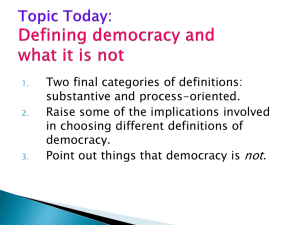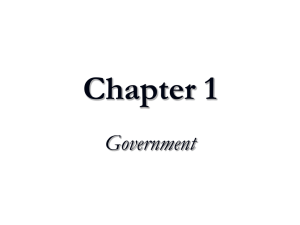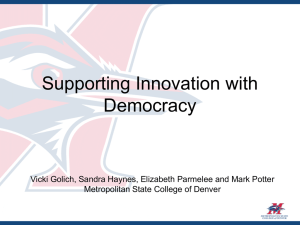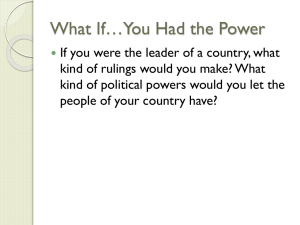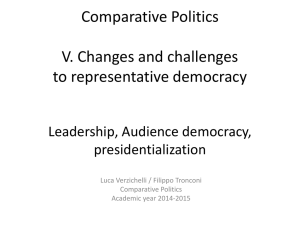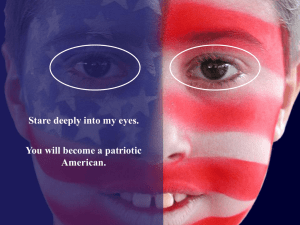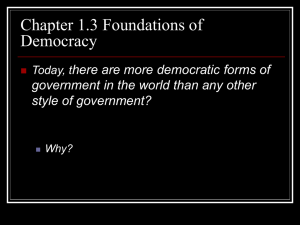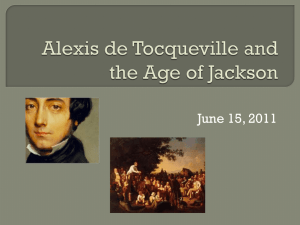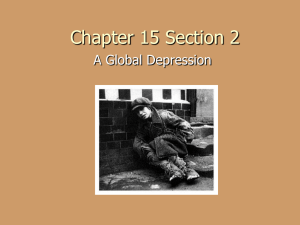chapter 1
advertisement
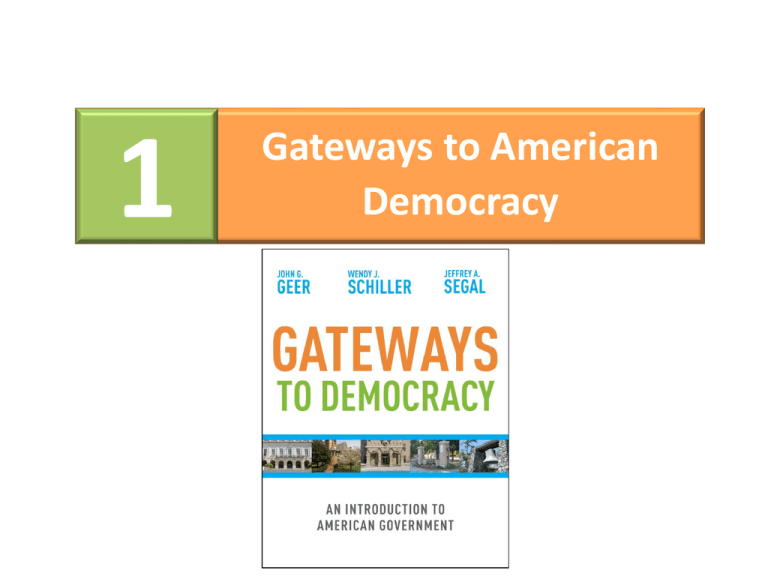
1 Gateways to American Democracy Citizen Participation Citizen participation is the heart of a democratic system. • Because of citizen participation the United States has achieved the following successes: – The nation and its institutions are amazingly stable. The United States has the oldest written constitution in the world. – The government has weathered severe economic crises, a civil war, two world wars, and yet it still maintains peaceful transitions of power from one set of leaders to the next. Successes Continued – Citizens are able to petition the government and to criticize it. They can assemble and protest the government’s policies. – Americans enjoy substantial freedom and are protected from the abuse of power by the government. – The American economy has created an excellent standard of living, among the highest in the world. Problems with American Democracy Despite many successes, American Democracy still has its problems. • Inequality persists, and government is sometimes slow to respond. • Even with the election of President Barack Obama in 2008, racial tensions continue to haunt the country • The imbalance of wealth in this country continues to grow, with increasing numbers of people living in poverty Problems Continued • The public’s trust in the institutions of government has eroded in recent years. • The rate of turnout in our elections is among the lowest of the major democracies. • Despite a high level of religious tolerance, there is also persistent distrust of some religious minorities, such as Muslims. What is democracy? Rule by the people or self-government. • Citizens hold political authority What is Majority Rule? Majority Rule is the idea that a numerical majority of a group should hold the power to make decisions binding on the whole group; a simple majority. • Often associated with “mob rule”, a lack of liberty, and a lack of order in society. • “Democracy, while it lasts is more bloody than either aristocracy or monarchy. Remember, democracy never lasts long. It soon wastes, exhausts, and murders itself. There is never a democracy that did not commit suicide.” -John Adams The Social Contract Social contract is a theory that government has only the authority accorded it by the consent of the governed. • First proposed by Thomas Hobbes. • Revised by John Locke. The Case for Natural Rights John Locke argues that people had “natural rights.” • Life • Liberty • Property – These beliefs are later echoed by Thomas Jefferson in the Declaration of Independence and are central to the U.S. Constitution. Is the United States a Democracy? There is not one single type of democracy. • Direct Democracy – Form of democracy in which political power is exercised directly by citizens. • Representative Democracy (aka Republic) – Form of democracy in which citizens elect public officials to make political decisions and formulate laws on their behalf. American Political Culture Despite attachments to ideologies and parties, American political culture is still rooted in the concept of individualism. • Set of beliefs holding that people, and not government, are responsible for their own well-being American Political Culture continued Despite American’s love of individualism, they also believe strongly in the principle of egalitarianism. • Egalitarianism is the belief in human equality that disdains inherited titles of nobility and even inherited wealth – American political culture is seen as a bit of a dichotomy, supporting both capitalism and socialism. Autocracy, Oligarchy and Monarchy The best way to see how government responds to citizens in a democracy is to compare it with countries where citizen input is limited. • Autocracy is a system of government in which the power to govern is concentrated in the hands of one individual ruler. – Saddam Hussein was an autocrat whose power was derived from oppression of the people. Oligarchy and Monarchy • Oligarchy is a system of government in which the power to govern is concentrated in the hands of a powerful few, usually wealthy individuals. • Monarchy is a system of government that assigns power to a single person who inherits that position and rules until death. – In each of these systems, the government keeps powers until they are overthrown, usually in a military coup. – Elections, while sometimes held, are rigged so that the ruling party or official stays in office. Democratic Inputs In a democratic state, the citizens are asked to be actively engaged in the political process, for the benefit of all. The Role of Representatives in a Democracy Should elected officials act as trustees or delegates? • A trustee is an elected official who does what they think best, even if the public disagrees; elections allow the public to render a judgment on their decisions. • A delegate is an elected official who does what the public wants and does not exercise independent judgment. - In reality, most elected officials act as both trustee and delegate, depending on the issue before them. The Demands of Democratic Citizenship Why should a person participate in a democratic society? • Self-interest – Concern for one’s own advantage and well-being. If you don’t participate in our democracy, how can you expect your rights and interests to be reflected in public policy? • Civic interest – Concern for the well-being of society and the nation as a whole. Think of this as a sense of duty, to do what is right for your country and your fellow citizens. If we want this experiment that is American democracy to succeed, then it is up to all of us to play an active role. Policy Issues That Matter • • • • Terrorism and Civil Liberties Social Security and Entitlement Programs Immigration and Diversity Education Social Security & Entitlement Programs Immigration and Diversity: The Changing Ethnic Composition of America Education: Increasing Costs of Education Focus Questions • Does American democracy work? How can you evaluate it? • How democratic was the constitutional system of 1787? How democratic is the United States today? • What are the pros and cons of a system in which state governments and a national government share power? • What should be the balance between liberty and order? How has the U.S. government balanced the two? What liberty vs. order questions do citizens face today? • Why is equality important in a democracy? What role does, or should, government play in ensuring equality? What kinds of equality can, or should, government ensure? What should be the balance between equality and liberty?

